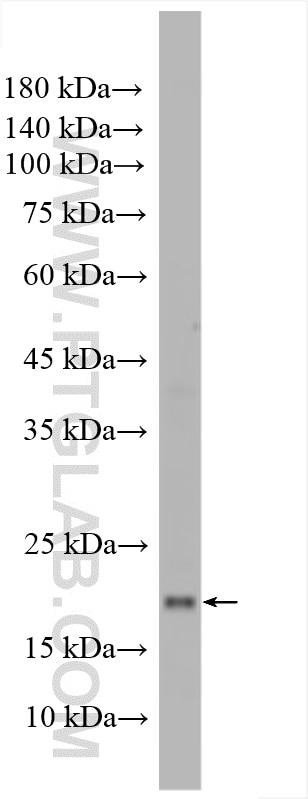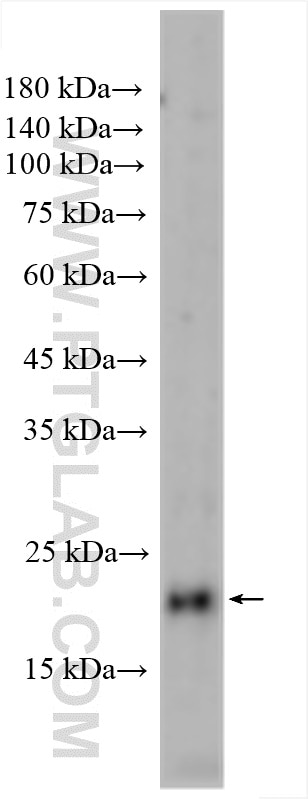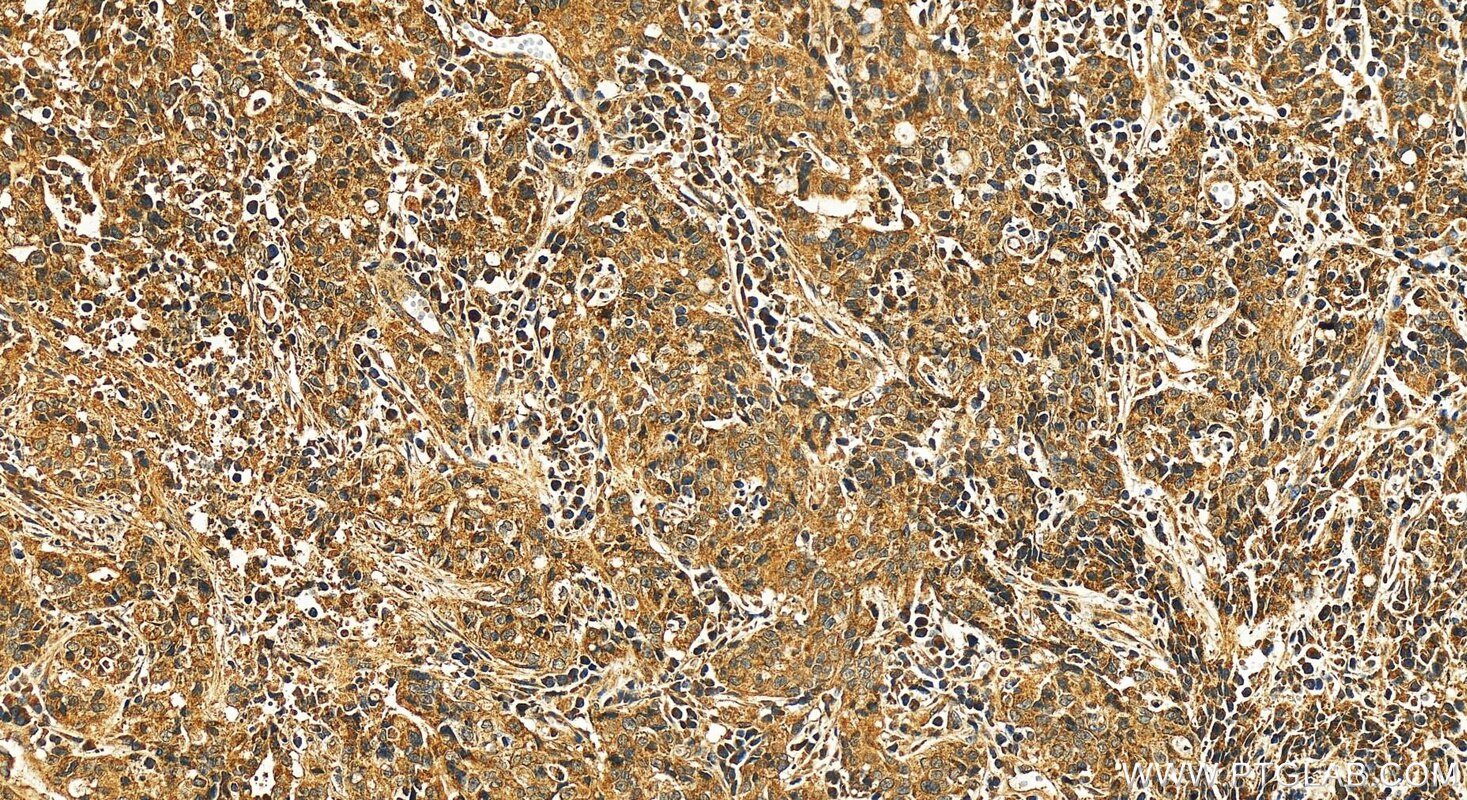Tested Applications
| Positive WB detected in | MKN-45 cells, Caco-2 cells |
| Positive IHC detected in | human stomach cancer tissue Note: suggested antigen retrieval with TE buffer pH 9.0; (*) Alternatively, antigen retrieval may be performed with citrate buffer pH 6.0 |
Recommended dilution
| Application | Dilution |
|---|---|
| Western Blot (WB) | WB : 1:500-1:1000 |
| Immunohistochemistry (IHC) | IHC : 1:50-1:500 |
| It is recommended that this reagent should be titrated in each testing system to obtain optimal results. | |
| Sample-dependent, Check data in validation data gallery. | |
Published Applications
| WB | See 2 publications below |
Product Information
21368-1-AP targets ASCL2 in WB, IHC, ELISA applications and shows reactivity with human samples.
| Tested Reactivity | human |
| Cited Reactivity | human |
| Host / Isotype | Rabbit / IgG |
| Class | Polyclonal |
| Type | Antibody |
| Immunogen |
CatNo: Ag15839 Product name: Recombinant human ASCL2 protein Source: e coli.-derived, PGEX-4T Tag: GST Domain: 102-193 aa of BC057801 Sequence: LQRLLAEHDAVRNALAGGLRPQAVRPSAPRGPPGTTPVAASPSRASSSPGRGGSSEPGSPRSAYSSDDSGCEGALSPAERELLDFSSWLGGY Predict reactive species |
| Full Name | achaete-scute complex homolog 2 (Drosophila) |
| Calculated Molecular Weight | 193 aa, 20 kDa |
| Observed Molecular Weight | 20 kDa |
| GenBank Accession Number | BC057801 |
| Gene Symbol | ASCL2 |
| Gene ID (NCBI) | 430 |
| RRID | AB_2935452 |
| Conjugate | Unconjugated |
| Form | Liquid |
| Purification Method | Antigen affinity purification |
| UNIPROT ID | Q99929 |
| Storage Buffer | PBS with 0.02% sodium azide and 50% glycerol, pH 7.3. |
| Storage Conditions | Store at -20°C. Stable for one year after shipment. Aliquoting is unnecessary for -20oC storage. 20ul sizes contain 0.1% BSA. |
Background Information
Achaete-scute complex homolog 2 (Drosophila), also known as ASCL2, is an imprinted human gene. This gene is involved in the determination of the neuronal precursors in the peripheral nervous system and the central nervous system, particularly important during implantation of the developing embryo, specifically in placental development and neuronal precursor determination. ASCL2 has been reported involved in tumor progression, being upregulated in colorectal tumors, and involvement in metastasis could be attributed to ASCL2-promoted cellular self-renewal as opposed to cellular differentiation (PMID: 30096149 16568095).
Protocols
| Product Specific Protocols | |
|---|---|
| IHC protocol for ASCL2 antibody 21368-1-AP | Download protocol |
| WB protocol for ASCL2 antibody 21368-1-AP | Download protocol |
| Standard Protocols | |
|---|---|
| Click here to view our Standard Protocols |
Publications
| Species | Application | Title |
|---|---|---|
Adv Sci (Weinh) Inhibiting FAT1 Blocks Metabolic Bypass to Enhance Antitumor Efficacy of TCA Cycle Inhibition through Suppressing CPT1A-Dependent Fatty Acid Oxidation | ||
Gene tRNA-derived RNA fragment, tRF-18-8R6546D2, promotes pancreatic adenocarcinoma progression by directly targeting ASCL2 |








